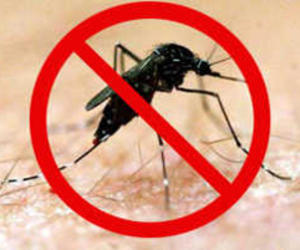How has Cuba protected its population against dengue and other infectious diseases?
- Submitted by: manso
- Editorial Articles
- 09 / 17 / 2011

José A. de la Osa. HOW has Cuba protected its own citizens and travelers from diverse countries around the world from infectious disease? Granma sought an answer from Ministry of Public Health specialists in hygiene and epidemiology, who responded:
Thirty years after the introduction of the hemorrhagic dengue virus into the country by unscrupulous individuals from the United States, which has cost the lives of 158 Cubans, including 101 children, the commitment of the revolutionary government and strict adherence to preventative measures has assured today that 26 so-called infectious diseases have been totally limited or are under control, through our vaccination program and a strong National System of Vigilance and Epidemiological Management.
These are dengue, malaria, cholera, West Nile virus, yellow fever, Chagas disease, human rabies, typhoid fever, tuberculosis meningitis, measles, whooping cough, rubella, polio and diphtheria.
Also, meningitis meningococcal B and C, meningitis and pneumonia from Haemophilus influenza type B, leprosy, hepatitis B, brucellosis, parotitis (mumps), post-parotisis syndrome, tetanus in adults and newborns, infantile AIDS and congenital syphilis.
In response to the warning recently emitted by the Pan American Health Organization (OPS), given the significant increase in cases of dengue on the continent, Cuban health officials have reiterated that there are no internal dengue outbreaks. Only 21 cases have been reported, imported by travelers from countries where the disease is endemic, and these individuals were treated in a timely fashion.
In addition to the medical attention these patients received, epidemiological control measures were taken, including fumigation in areas surrounding their homes to avoid spreading of the illness and close monitoring of the vector, according to established rapid response health programs linked to the control of diseases transmitted by mosquitoes such as dengue or through water supplies.
The country has made the necessary investment to systematically develop this work with the participation of specialists and technicians from Entomological Vigilance and Anti-vector entities organized in health centers, municipalities and on the provincial level, entrusted with the task of inspecting dwellings and workplaces every 24 days to assure the destruction of vector habitats, fumigation and other tasks. They have at their disposal the human and material resources needed.
Three decades after the criminal biological attack on Cuba, the country is recognized by the Pan American Health Organization as one of three countries in the region, along with Chile and Uruguay, where dengue is not widespread, thanks to the strength of its healthcare system and the active participation of the community in checking dwellings and workplaces to ensure the elimination of breeding sites for the vector of this dangerous disease, the Aedes aegypti mosquito.
Thus as is done every year, the appeal has been issued calling for efforts to be redoubled during August, September and October, when heavy rainfall can create conditions for the proliferation of breeding sites, if the appropriate measures are not taken.
Pan American Health Office: Report on the incidence of dengue on the continent through week 33, August 19, 2011
(*) All cases, standard and serious
(**) International bodies estimate that for every reported case of dengue, there are 10 more undetected asymptomatic or minor cases.
Source: www.granma.cu/ingles/cuba-i/15sept-How has.html
Comments